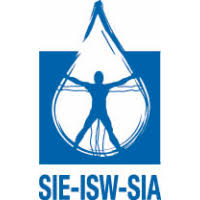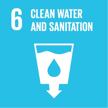About this project
Context
In Accra, the capital of Ghana, the urban poor are disproportionately affected by the city’s unequal water access regimes. The Ghana Water Company Limited (GWCL), the city’s public water utility company is only able to meet 63% of the metropolis’ water demand. Out of this number, majority of the piped connections are found in high-income households and wealthy neighbourhoods, with a paltry 16% connection in low-income areas most of which are informal settlements and slums. About 80% of the households within these slums with no direct connections to the urban piped water network, procure water from a labyrinth of informal and private vendors and tankers at a very high cost— about 10 times more than the cost at which other privileged and affluent households buy water from the public utility company. Water purchased from the informal water market is low in quality, with not just adverse health impacts but also implications on household incomes and poverty levels among the urban poor.
Impact of COVID-19 on water access among Accra’s urban poor
The COVID-19 pandemic has further exacerbated the water situation. There’s a drop in the incomes and earnings of the urban poor who predominantly make a living in the informal economy due to lockdown and other social distancing measures. This has widened the urban water inequality gap. Further, current disruptions, shortages and rationing of water in the city have increased demand against supply, resulting in rising costs on the informal water market. Vendors are selling water 100-150% more above the normal price, forcing children and girls to walk for kilometres to other places in search of water for their families. This burden is also aside the poor sanitary conditions under which these informal providers store water in tanks for sale.
Government of Ghana (GoG) has responded with a free water supply program to poor homes for 3-4 months, however, this initiative is fraught with several planning and logistical challenges to make a significant difference.
Our solution: Kyɛnsu
Kyɛnsu, a word literally translated as ‘share water’ in Ghana’s Akan language, is a community project that provides a platform for members of the public who enjoy uninterrupted water supply, to sign up through a mobile short code, and share water with households in an undeserved and underprivileged urban community.
A community water-share kiosk would be built in the informal settlement to store the water donated. Water will then be filtered and sold to the community’s informal residents at a very cheap price. The project will also exchange water for plastics in a barter system to address plastic pollution in slums. Plastics received from households will be sold to a recycling plant at a fee. Income generated from the project through the sale of water and plastics will be used to keep the water-share kiosk running by paying unemployed community youth a wage to run the station. This is to sustain the project beyond the initial funding phase.
Goals and Objectives
This project is grounded on the concept of water justice. It aims to present water inequality as systemic, and a justice issue with underlining historical power and social relations of politics and economics that benefit few people and marginalise and confine several others into poverty. In addressing this, we suggest three key things: first, the recognition that informal communities have an agency and capacity to address the water challenge when supported adequately; second, the need for active participation of community youth in the project design and implementation for long term sustainability; and last, the redistribution of water resources to achieve a just and equitably even urban water access system.
Through stakeholder mapping exercises, we will identify and engage a number of community stakeholders to buy into the project and host it by providing a space for the water-share kiosk. These stakeholders will include the resident Assembly Member of the community; the District Assembly Office in the constituency; traditional leaders (chief), religious leaders, women-led savings groups, girls’ networks, community-based organisations (CBOs) and youth-led groups.
To this end, the following are the specific objectives:
- To address water poverty by re-distributing water resources to alleviate the burden on slum households’ income allocated to water procurement from informal water market;
- To provide clean drinking water to slum residents at risk of mortalities due to diarrheal diseases directly related to poor water, sanitation and hygiene;
- To make water available to low-income informal settlers whose access to water has been significantly hindered by COVID-19, thereby facing handwashing challenges.
Expected result
Indicators for a successful project
In the short term (4-6 months), we will track progress by;
- Using surveys to document the number of residents migrated from the informal water market unto Kyɛnsu;
- Conducting interviews to record the savings made on households’ water budget;
- Collecting personal testimonies on the improvement of hygiene and handwashing among the informal settlers;
- Interviewing children and girls to collect data on number of hours saved in search for water.
In the long term, the key indicators for measuring impact would be a community self-governing, self-financing and self-sustaining project
A community self-governing project
This would be a youth-led informal self-governed community water planning and management group to participate in decision making concerning the day-to-day running and long-term management of the project. Since women and girls face the brunt of water problem in low-income areas, the youth-led governing body of Kyɛnsu will constitute 60% females. This idea of a representative and inclusive informal local governing body is similar to the concept of local water boards (LWB) which is already existent in Teshie, a suburb of Accra.
The LWBs is a successful locally inclusive and alternative water governance approach different from formal institutionalized systems and highly adaptable to low-income areas.
A community self-financing project
Another indicator of impact would be a community self-financed project beyond 2020. The main fulfillment expenses of the water-share station would be a one-off cost of constructing a water kiosk fitted with storage and purification system. This will be borne at the beginning of the project and paid for by the €3,500 project financial support. The operational cost of running the station include wages that will be paid to young people employed to help run the station, as well the electricity and maintenance costs. These costs would be covered by the sale of water to residents and the sale of plastics to recycling companies. This model allows the community to self-finance the project.
A community self-sustaining project
With the next 2-5 years from the implementation of the project, we expect the community to self-sustain Kyɛnsu by looking beyond the benevolence of donors to donate water. We expect the community to re-claim water sovereignty by using the station’s savings to create a water fund. The water fund will help the community to self-finance to diversify the sourcing of water from water bodies within and outside Accra. The project would also work with other actors beyond the community’s boundaries to protect these water bodies from pollution and destruction. This will scale-up the project to reach more people, as water from other sources such as protected rivers, streams and water wells will constitute more than 60% of water stored at the station to be sold to the low-income residents. We draw lessons from The Nature Conservancy water fund projects that currently exists in some sub-Saharan African countries such as Kenya, Tanzania, Zambia, etc
Sustainable Development Goals
Partners



About me / organisation
Gideon Commey, Perk Pomeyie
Gideon Commey is an environmentalist, urban environmental planner and a development practitioner. He holds an MSc in Environment and Sustainable Development from the Development Planning Unit of the University College London (UCL). He is the founder of the Ghana Youth Environmental Movement (GYEM), a youth-led grassroot public policy and campaign group, which mobilises, organises and empowers young people to take action to solve environmental challenges in their communities. He has over 15 years’ experience in digital and community organizing, leading environmental policy advocacy and campaigns and managing community-based environment and WASH based projects. He was the project manager for the national forum on Water, Sanitation and Hygiene (WASH) based climate adaptation strategies in collaboration with WaterAid Ghana in 2016.
Perk Pomeyie, is an environmental activist with 6 years of experience in grassroots mobilizing, Non-Violent Direct Actions (NVDA) tactics, designing of communication strategies for environmental movements and civil society organizations. With his creative design, digital mobilizing skills and knowledge in design thinking he has organized and led campaigns that have influenced government policy and decision making. In 2017/2018, he led the Ghana Youth Environmental Movement (GYEM) to campaign for a review of the Renewable Energy Act of Ghana to promote renewable energy and tackle climate change. Perk is a freelance graphic designer with a Bachelor of Arts in Communication Studies, Public Relations from the Ghana Institute of Journalism.
Website Website
